- About Ramapo
- Academics
- Admissions & Aid
- Student Life
- Athletics
- Alumni
- Arts & Community
- Quick Links
- Apply
- Visit
- Give
Ramapo International
Session Description: Many people in the Amazon basin of South America continue long-term, indigenous legacies of ecological culture and interactions with the species and ecosystems where they live. Meanwhile, business interests, migration patterns, climate change, the current pandemic and a variety of external pressures and social dynamics threaten to permanently destabilize previously sustainable ways of life.
Professor Eric Wiener will present a slideshow based on his work in the Peruvian Amazon over the past 30 years, and he and Professor Ashwani Vasishth will share insights and lead a discussion about this critical time for the people and ecosystems of the most biodiverse region on earth.
Presenter’s Bios:
 Eric Wiener is an Associate Professor of Environmental Science. Fluent in Spanish and Portuguese, for over 30 years Dr. Wiener has been conducting research and other scholarship related to forest restoration ecology and sustainable forest management by
Eric Wiener is an Associate Professor of Environmental Science. Fluent in Spanish and Portuguese, for over 30 years Dr. Wiener has been conducting research and other scholarship related to forest restoration ecology and sustainable forest management by
small landholders in Peruvian and Brazilian regions of the Amazon basin. Since joining the Ramapo College faculty, Dr. Wiener has been conducting extensive field research with strong student involvement about accelerated ecological change in forests of the
New Jersey and New York Highlands. In recent years, Dr. Wiener has also been conducting field research about raptor migration via the Ramapo Mountains, and the restoration and ecology of native wildflower meadows. His research interests also include sustainable landscaping and environmental stewardship.
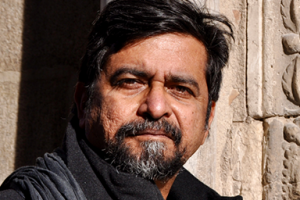
Ashwani Vasishth is Associate Professor in Sustainability, Convener of the undergraduate Sustainability Program (BA), and Director of the Center for Sustainability at Ramapo College of New Jersey. Dr. Vasishth is President of the New Jersey Higher Education Partnership for Sustainability (NJHEPS). He is part of the Environmental Studies Major and is a faculty member in both the South India and Peru Study Abroad programs. Dr. Vasishth’s pedagogy is focused on Education for Sustainability from within a transdisciplinary framework, always taking a scale-hierarchic, ecosystem approach to complexity, and within the context of a globalizing International SustainableDevelopment paradigm. He has research interests in an ecosystem approach, urban ecology, systems thinking and mental models.
Join Webex meeting: https://ramapo.webex.com/ramapo/j.php?MTID=m700f404f3faf11145e266401c5d95b31
(ID: 1785894842, password: xtWEFcsx)

Co-sponsored by: The Roukema Center for International Education, the George T. Potter Library, Ramapo Green and the Ramapo Provost Office.
Presentation Description: This presentation introduces population health perspectives, with emphasis on the biological and social determinants of health at the community level, such as transportation, food, economic status, age and lifestyle habits. Examples in a Chinese community and Traditional Chinese Medicine (TCM) practices will be discussed.
Presenter Bio: Yan Xu is a member of the Biology convening group. She was trained as a plant biologist but has adapted to the education missions at a liberal art college by creating various interdisciplinary and intercultural courses and programs. She serves as the conveners of Plant Studies Minor and Public Health Minor, and a founding member of the Food Studies Minor. Her elective courses, Food Studies (BIOL 346), Medicinal Plants (BIOL 347), Plant Physiology (BIOL 324), Epidemiology (BIOL 204), and Community Health and TCM (SCIN 220/NURS 220), have all focused on human-environment interactions and the well-being at the community level. She regards learning as a life-long journey, and visions herself as a facilitator for her students’ learning experience occurring both inside and outside the classroom.
Join Webex meeting: https://ramapo.webex.com/ramapo/j.php?MTID=m95e4b6b2c55f8498c27d6879e0dd21a7
(ID: 1787294578, password: HSPNd3Xw)
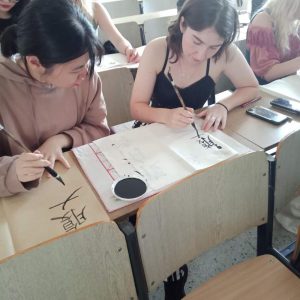
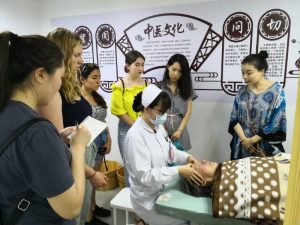
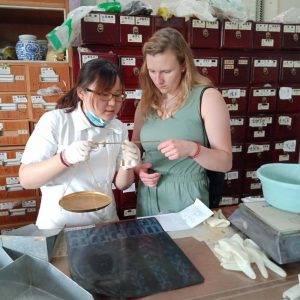
Co-sponsored by: The Roukema Center for International Education, the George T. Potter Library, and the Ramapo Provost Office.
Session Description: Are you interested in studying relationships between people and music, in your local community and around the world? Then you might be interested in ethnomusicology, a long name for an accessible topic. Ethnomusicologists study how making and listening to music connects to emotion and entertainment; friendship, family, and community; dance, drama, and ritual; business, politics, and globalization; and, more often than not, culture and identity. This Global Talk introduces several of these topics as well as common research methods and ways ethnomusicology relates to other music professions. After the presentation by Professor Marc Gidal, a second ethnomusicologist who teaches at Ramapo, Adjunct Professor Andrew Kaye, will offer additional remarks prior to Q&A with attendees.
Presenters’ Bios:
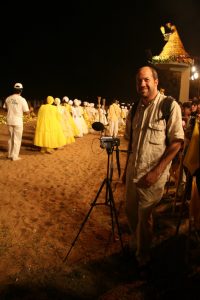 Marc Gidal, Associate Professor of Music (Musicology) at Ramapo, is anethnomusicologist who studies religious music, art music, and jazz from Brazil and the U.S. He also studied music and religion in India and Israel. As a musician, he primarily plays jazz bass. PhD, Harvard; MA, Tufts; BS, University of Oregon.
Marc Gidal, Associate Professor of Music (Musicology) at Ramapo, is anethnomusicologist who studies religious music, art music, and jazz from Brazil and the U.S. He also studied music and religion in India and Israel. As a musician, he primarily plays jazz bass. PhD, Harvard; MA, Tufts; BS, University of Oregon.

Andrew L. Kaye, PhD, is an ethnomusicologist who has published on topics in African music, the history of stringed instruments, and film music. He has taught courses on Asian music, Latin American music, music of the European classical tradition, film music, music and gender, jazz, rock, and hip-hop. Kaye has traveled to over 80 countries and speaks several languages. A tango aficionado, he has taught tango workshops in Norway and Qazaqstan.
Join Webex meeting: https://ramapo.webex.com/ramapo/j.php?MTID=m7133450e2728604ad0440ca6c0db9f1c
(ID: 1780833337, password: EBh4Ebbp)
Co-sponsored by: The Roukema Center for International Education, the George T. Potter Library, Ramapo’s School of Contemporary Arts and the Ramapo Provost Office.
Presentation Description: Donald Trump’s presidency gave voice to extreme anti-immigrant sentiments among millions in the United States and elsewhere in the West. However, the anxiety about immigrants and the steadfast resolve to keep out the unwanted intruders have been dominant for decades. Migrants have been portrayed as an army of faceless invaders, men and women and children coming to us on overpacked boats, or the multitudes sneaking through our borders in the dark of the nights. They are the invisible aliens in our midst. Migrant Narratives is an attempt to make visible the invisible, and unpacking the dominant public perception and paradigm by sharing the life stories of those we have grown to fear.
Presenter Bio: Behzad Yaghmaian is an Iranian-born author and a Professor of Political Economy at Ramapo College of New Jersey. Yaghmainan’s books include Embracing the Infidel: Stories of Muslim Migrants on the Journey West (Penguin Random House, 2006), and Accidental Capitalist: A People’s Story of Modern China (Pluto Books, 2012). Kirkus Reviews called Embracing the Infidel, “An El Norte or Grapes of Wrath for the Muslim world.” The San Francisco Chronicle called Yaghmaian “a masterful storyteller.” Publishers Weekly called him “a modern Alexis de Tocqueville.” Yaghmaian’s op-ed pieces have appeared in The Wall Street Journal, The New York Times, USA Today, Foreign Affairs, and Aljazeera. He has had many appearances on CNN, CNN International, Book TV, Democracy Now, NPR’s Morning Edition, WNYC’s The Brian Lehrer Show, various Public Radio stations, the Canadian Broadcasting Corporation, and radio programs in England and Italy.
Join Webex meeting:
https://ramapo.webex.com/ramapo/j.php?MTID=m5893470f6874905f18e833e6a21be7fe
(ID: 1787769959, password: VFhv83da)
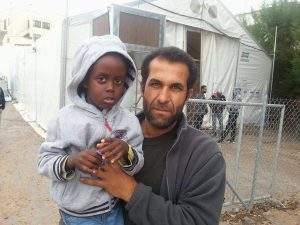
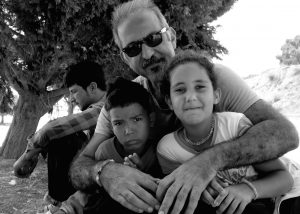
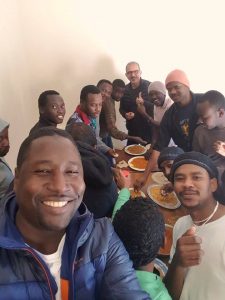

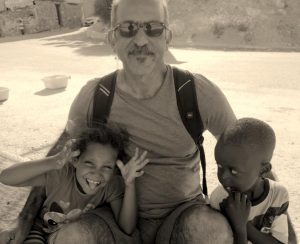

Co-sponsored by: The Roukema Center for International Education, the International Rescue Committee, the George T. Potter Library, and the Ramapo Provost Office.
View other Global Talks here: Ramapo’s Global Talks
Session Description: One year into the pandemic. Something unexpected that has completely changed our lives: our sense of time and space, our mobility, our habits. It’s a catastrophy, as the ancient Greeks said, and the etimology teaches us. It’s an upside-down world. Neverthless all the Beauty is still here. The Nature has taken back its spaces as the Art inspires even more respect despite ghost cities and empty squares. The dialogue between us and the places can even become more intense. It depends on which point of view you choose.
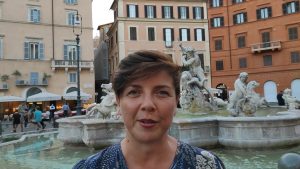 Presenter Bio: Mattea Di Fabio is the ISA Rome Resident Director since 2004. She was born in Rome and graduated from La Sapienza University with a Master’s degree in Humanistic and Historical Studies. She has traveled extensively throughout Europe and around the world (US, Brazil, Northern Africa and Kenya, India and Nepal). Mattea worked at summer camps with Italian high schools students during their time in UK and Ireland. As licensed tourist guide, she has experience in Italian primary and secondary schools, where she worked as a teaching consultant helping teachers to develop a more critical awareness with their pedagogy and lesson planning.
Presenter Bio: Mattea Di Fabio is the ISA Rome Resident Director since 2004. She was born in Rome and graduated from La Sapienza University with a Master’s degree in Humanistic and Historical Studies. She has traveled extensively throughout Europe and around the world (US, Brazil, Northern Africa and Kenya, India and Nepal). Mattea worked at summer camps with Italian high schools students during their time in UK and Ireland. As licensed tourist guide, she has experience in Italian primary and secondary schools, where she worked as a teaching consultant helping teachers to develop a more critical awareness with their pedagogy and lesson planning.
Join Webex meeting: https://ramapo.webex.com/ramapo/j.php?MTID=mba87525cf1306efb5195d9887b404902
(ID: 1784342622, password: qpWW3ptv)
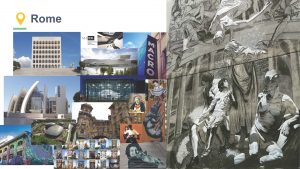
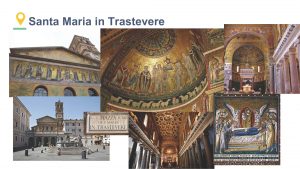
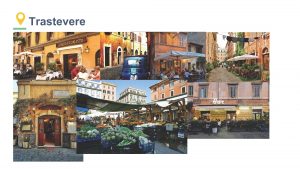
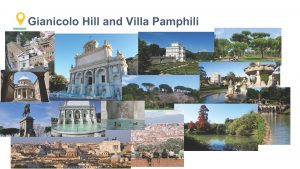
Co-sponsored by: The Roukema Center for International Education, the George T. Potter Library, Ramapo Provost Office, and International Studies Abroad.
Copyright ©2025 Ramapo College Of New Jersey. Statements And Policies. Contact Webmaster.

Follow Ramapo